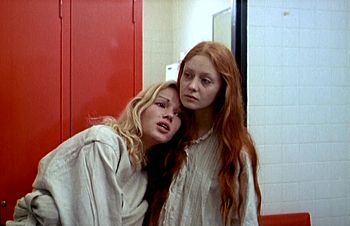Matthew Simmons
Matthew Simmons lives in Seattle.
Matthew Simmons lives in Seattle.
Tao, when you are 73, I hope you get arrested for shoplifting from American Apparel: Seniors. (And I mean that with the greatest affection.)
Pindeldyboz, a site which I read regularly and aspired to publish on early in my discovery of the vibrant online lit scene, is shutting down. Thanks for everything, Whitney and gang.
A link from my friend Dan: Sri Randal Randal stands on a ladder and connects people to disembodied spirits. LA readers, please go see this man for me.
httpv://www.youtube.com/watch?v=_6LB0MQI4V4
Love Battery is my favorite Seattle band.
No, Mash Hall is my favorite Seattle band.
httpv://www.youtube.com/watch?v=MW99Y6VenQk&feature=related
No, Bill Horist is my favorite Seattle band.
***

I enjoyed Reality Hunger. Blake, not so much. We had an email conversation about it. Here it is.
M: So, I gave you my galley of Reality Hunger, and saw this on your Twitter feed: “fairly underwhelmed by ‘reality hunger’ — what’s so innovative about making a list of things praising innovation?” I’m not sure that’s what I thought I was reading, though—a list of praise for innovation. I think I read an argument for the synthesizing of creative disciplines. Nonfiction and fiction, say, ingesting one another—two snakes swallowing one another whole, beginning at one another’s tail. And the thesis, antithesis, synthesis structure feels less linear to me than the word “list” implies.
B: You’re correct, it’s not quite just a list of praise for innovation–though quite a bit of the book repeats something along those lines of the ingesting as you mention, and does it again, again, again. And it’s certainly not untrue: fiction, or any writing, must continually evolve, for fear of that same pattern of repetition, or at the very least no longer being interesting, or “relevant,” which I think was Mr. Shields’s major point. People get bored. Times change. Sure. My problem with the book, though, is that, well, OF COURSE. Of course things will keep changing, and of course there will be those who feign against it, making more of the same, and that in the end leads to the demise of the interest, and the morph continues etc. These are things we know.
READ MORE >
On Dennis Cooper’s blog, there’s a really great collection of videos and quotes about “hypnagogic pop.”

(This is another short reaction to the films in this list. I have now had a chance to see 13 of the 50. When Blake first posted to the list, I had seen four. The first two on the list are on my nightstand. A few others I have found at Seattle’s Scarecrow Video. Some are proving very difficult. Any help procuring the Dore O movie Alaska would be appreciated.)
Another recurring theme from the films on the list is that of identity loss. A film from the last post (Cure) and a film I watched a few days ago (The Night of the Hunted) both had contrasting kinds of identity loss.
Here’s John Clute’s The Darkening Garden: A Short Lexicon of Horror on the subject:
In horror…[Identity Loss] works as a confirmation of the self’s purchase on the present tense of the daylit daily world; it is a marker of Belatedness made visible or to come; it is a signal that the abandoned past (over the last two centuries, most of our pasts have been abandoned) is catching up with us.
Cure’s antagonist has rejected his own identity. When questioned (by those who attempt to help him when they find him wandering aimlessly, by the police who suspect him of murder), he claims no memory of anything. He claims to make few new memories, asking his inquisitors their identities even after they have introduced themselves and never being sure just where it is he is. He claims that all the things that were once within him are now on the outside; that he is a shell.
READ MORE >